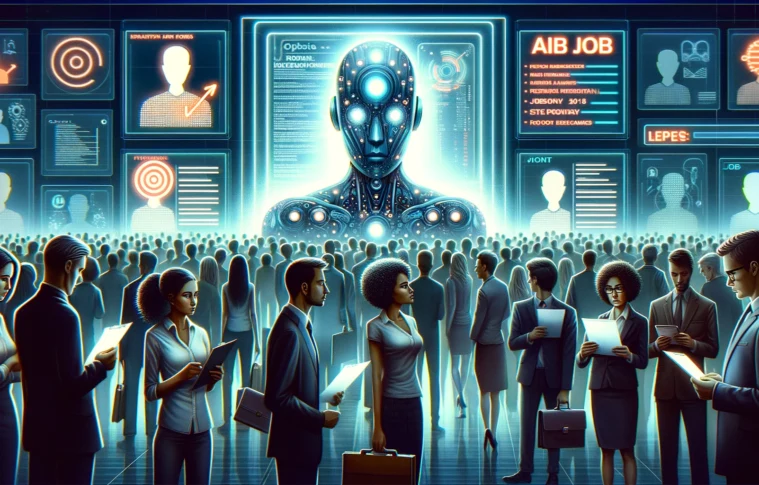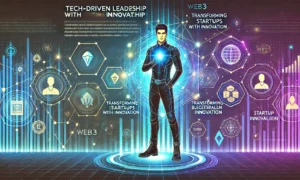Artificial intelligence (AI) is subtly but profoundly reshaping the job market, affecting employment trends across industries. From automating repetitive tasks to creating entirely new career opportunities, AI’s influence is expanding rapidly, compelling businesses and workers to adapt to a technology-driven future.
How AI is Changing Job Markets
- Automating Routine Jobs:
- AI systems are taking over repetitive and manual tasks, particularly in industries like manufacturing, logistics, and customer service.
- Example: Automated chatbots and virtual assistants replacing entry-level support roles in customer care.
- Enhancing Productivity in High-Skilled Jobs:
- Professionals in healthcare, law, and finance are leveraging AI to make more accurate predictions, speed up processes, and enhance decision-making.
- Example: AI-assisted diagnostic tools helping doctors identify diseases more efficiently.
- Creating Demand for New Skill Sets:
- Jobs that didn’t exist a decade ago, such as machine learning engineers, AI trainers, and data visualization experts, are now in high demand.
- Emergence of AI Ethics and Governance Roles:
- The rise of AI has introduced roles focused on ensuring the ethical use of technology, addressing algorithmic bias, and managing regulatory compliance.
Key Employment Trends
- Rise of Hybrid Roles:
- Employees are expected to possess a blend of technical skills and soft skills like creativity, critical thinking, and adaptability.
- Hybrid roles, such as marketing data analysts or AI-powered sales strategists, are becoming more common.
- Shift Towards Lifelong Learning:
- Workers are increasingly required to upskill or reskill to remain relevant in AI-transformed industries.
- Online learning platforms like Coursera and Udemy are seeing a surge in enrollments for AI and data-related courses.
- Remote and Globalized Workforces:
- AI tools enabling remote work and collaboration are driving the globalization of talent, allowing companies to hire skilled workers from across the world.
Industries Most Impacted
- Healthcare:
- AI is enabling faster diagnoses and more personalized treatment plans, requiring healthcare professionals to integrate technology into their practices.
- Retail and E-commerce:
- AI is revolutionizing inventory management, customer experience personalization, and supply chain optimization.
- Education:
- AI-driven platforms are transforming how education is delivered, creating demand for curriculum designers who can integrate AI into teaching.
- Finance and Banking:
- AI-powered fraud detection systems and robo-advisors are becoming essential tools in the financial sector.
Opportunities and Challenges
- Opportunities:
- Creation of high-tech jobs in AI development, data analysis, and system maintenance.
- Increased productivity and efficiency across industries, leading to potential economic growth.
- Challenges:
- Displacement of workers in repetitive and low-skill roles.
- A growing skills gap, as educational systems struggle to keep up with rapidly changing technology demands.
What Does the Future Hold?
- Collaborative Work Environments: AI will increasingly work alongside humans, handling data-driven tasks while allowing employees to focus on creativity and strategy.
- Focus on Emotional Intelligence: Jobs that require human traits like empathy and emotional intelligence, such as counseling or customer relations, will remain critical.
- Dynamic Career Paths: Workers may need to switch careers or roles multiple times as AI continues to disrupt traditional employment models.
Steps to Adapt
- For Workers:
- Invest in upskilling, particularly in areas like AI, machine learning, and data analytics.
- Stay informed about emerging trends and adapt to new technologies.
- For Businesses:
- Develop reskilling programs to prepare employees for AI integration.
- Focus on collaborative AI solutions that enhance rather than replace human roles.
- For Governments:
- Implement policies to support displaced workers, such as unemployment benefits and training subsidies.
- Encourage collaboration between industry and academia to align educational programs with workforce needs.
Final Thoughts
AI is quietly but fundamentally transforming job markets, presenting both challenges and opportunities. By proactively embracing change, businesses, governments, and workers can ensure that AI becomes a tool for empowerment rather than disruption.
Stay connected with our news section to explore how AI continues to reshape the global employment landscape and what it means for the future of work.
Disclaimer
Posts in the Notebook are written by individual members and reflect personal insights or opinions. Please verify any information independently. If you have any concerns, notify the admin immediately so we can take action before any legal steps are taken.





